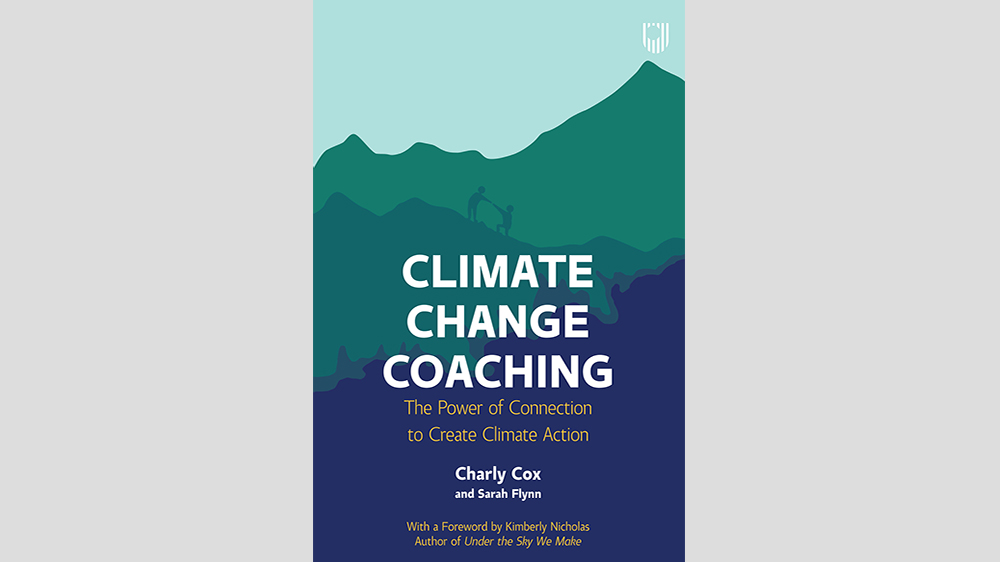
13 March 2023
We recently read Climate Change Coaching by Charly Cox and Sarah Flynn, in the EMCC UK Conversations with Authors series. Ruth Thomson and Esther Sanni write below with their thoughts and responses to the book.
‘The climate emergency affects us and our clients, and its impact will only grow in the coming years’
Review by Ruth Thomson
‘In the face of impending catastrophe, whose warning signs are already unbearably disastrous, weak action is unwise. No action is dangerous.’ William Ruto, President of Kenya
When starting to write this review of Climate Change Coaching by Charly Cox and Sarah Flynn, I searched for a strong quote to start the piece. Very quickly, I found myself becoming overwhelmed by the number of fear-producing quotes from Greta Thunberg to President Biden. Unfortunately, the reality of the climate emergency is existentially scary. Even worse, fear can cause us to shut down and hide away and not take action.
Luckily, Charly and Sarah have written a brilliant book showing us how we, as coaches, can use our coaching skills and abilities to help us take action, and our clients too. This is an excellent resource for all coaches – both as coaches and as inhabitants of a changing climate.
Climate Change Coaching provides a compelling argument as to why and how coaching applies to climate change, and it is written for a broad range of people working in or interested in climate change work. It provides insight into how to coach at an individual and systemic level, and how to look after ourselves as coaches as we do this important work.
Most importantly, this book showed me that, as coaches, we can have an impact on the climate emergency and even more importantly, how we can do it.
There is something for coaches at all levels in the book. For practitioner level coaches, the book shows how core coaching skills can be used in a new way. The real life examples are useful, because they bring them to life and contextualise them. For senior practitioners and master coaches, there are some very useful reflection exercises. They ask us to reflect on whether and how we bring climate change into our coaching work, when not prompted or led to do so by our clients.
Climate Change Coaching is a must read for all coaches. The climate emergency affects us and our clients, and its impact will only grow in the coming years.
‘What has been highlighted to me is that most people know climate change is happening, but the scale of the challenge makes it easy to feel insignificant’
Review by Esther Sanni
Climate Change Coaching aims to provide a helpful and practical guide for coaches in the arena of climate change. It sets out to empower people and deal with the overwhelm that some people might be feeling at this current time.
Many of the principles provided in the book can be applied to coaching in general, and to various life situations. I especially enjoyed the sections of the book which covered how change works, empowerment and belief, overcoming overwhelm, and how to recover from stress and burnout. But there are also many opportunities to learn from the real-life stories, as well as the fictitious examples, provided in the book.
Climate Change Coaching is a very current and timely book, especially for those who may not know how to start to make an impact in this very important area. The book articulates some common experiences that perhaps we have all had with regard to climate change, but could not put in words. What has been highlighted to me is that most people know climate change is happening, but the scale of the challenge makes it easy to feel insignificant. As coaches, the key is not to provide solutions but to explore our clients’ relationship to the problem.
Not only did this book teach me how to coach others around climate change, but it also helped me think about my own thought processes around the topic and the changes I might make going forward. As a result of this book, I will be changing the way I communicate to focus on listening more, and asking more questions to determine people’s values. If the change is not congruent with their values, the change will not happen.